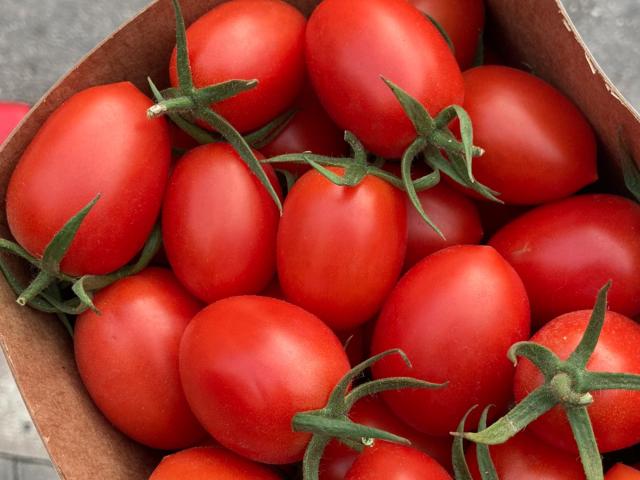In a groundbreaking study at Tel Aviv University, Israeli scientists have achieved a significant breakthrough in agricultural technology by developing tomato varieties that demonstrate enhanced water-use efficiency without any compromise on their yield, quality, or taste. Leveraging the revolutionary CRISPR gene-editing tool, the team succeeded in engineering tomatoes that require less water, addressing the critical challenges posed by global warming and the scarcity of freshwater resources.
The research was spearheaded by the collaborative efforts of Prof. Shaul Yalovsky and Dr. Nir Sade from the School of Plant Sciences and Food Security at the Wise Faculty of Life Sciences. The team comprised Dr. Mallikarjuna Rao Puli, under the supervision of Prof. Yalovsky, and Purity Muchoki, co-supervised by Prof. Yalovsky and Dr. Sade. Their study, enriched by contributions from additional students and postdoctoral fellows from Tel Aviv University, as well as researchers from Ben Gurion University and the University of Oregon, has been published in the prestigious journal, PNAS.
TAU researchers used #CRISPR gene-editing technology to develop tomatoes that consume less water while preserving yield, quality, and taste. This discovery could be applied to other crop plants for enhanced water use efficiency.https://t.co/QroysQE5Vi#plantscience pic.twitter.com/hqw6CiZ1jY
— Tel Aviv University (@TelAvivUni) January 31, 2024
The necessity for crops that consume less water yet do not sacrifice yield is becoming increasingly urgent due to the twin pressures of climate change and diminishing freshwater availability. The challenge lies in identifying plant varieties that can thrive with reduced water supply since water is fundamental to their growth and development.
Plants manage their water status through a process involving the evaporation of water from their leaves (transpiration) while simultaneously absorbing carbon dioxide for sugar production via photosynthesis. These processes are facilitated by stomata, tiny openings on the leaf surface that regulate water and carbon dioxide exchange. Under drought conditions, plants reduce water loss by closing their stomata, which, while conserving water, inadvertently limits carbon dioxide uptake and consequently, sugar production. This reduction in photosynthesis can negatively impact plant growth, yield, and fruit quality, particularly in terms of sugar content—a key determinant of taste and nutrition.
Tel Aviv University scientists use CRISPR technology to cultivate tomatoes that consume less water while preserving yield, quality, and taste. More at https://t.co/rTQEZyP3aP
— Israel Headline News (@IsraelHeadline) January 30, 2024
The team's innovation centered on targeting the ROP9 gene in tomatoes using CRISPR technology. The ROP proteins act as molecular switches, and their modification led to a partial closure of the stomata, especially at midday when water loss through transpiration peaks. Remarkably, this modification did not affect the plants' carbon dioxide uptake in the morning and afternoon, ensuring no decline in sugar production and, therefore, no compromise on the yield or quality of the tomatoes.
An extensive field experiment involving hundreds of plants confirmed that while ROP9-modified tomatoes exhibited lower water loss, their photosynthesis, crop quantity, and quality remained unaffected. This research not only presents a viable solution to cultivating crops in arid conditions but also uncovers a novel mechanism related to stomatal regulation by reactive oxygen species, offering profound insights for the scientific community.
Water conservation is critical in many parts of our parched planet. #Israel once again leads the way. #greentech #innovation https://t.co/N3puNANKML
— ZevOps (@ZevOps2020) January 31, 2024
The implications of this study extend beyond tomatoes. Given the similarity between the ROP9 protein in tomatoes and ROP proteins in other crops like peppers, eggplants, and wheat, the findings pave the way for developing a range of water-efficient crops. This breakthrough heralds a promising future for agriculture, where water scarcity no longer dictates crop yield, ensuring food security in the face of climate change.


